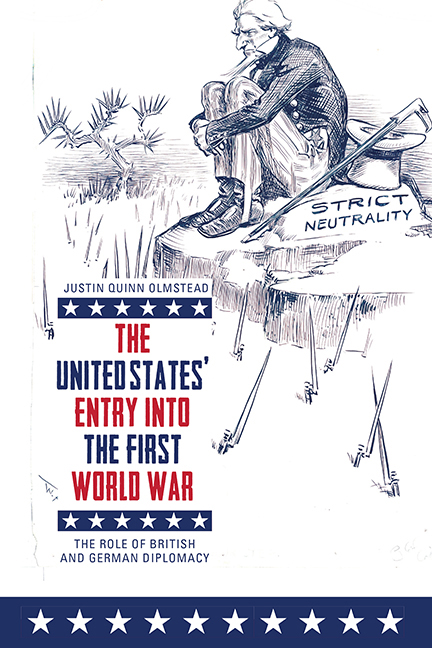Book contents
1 - Traditions in Foreign Policy and Diplomacy
Published online by Cambridge University Press: 12 October 2019
Summary
As war clouds loomed and eventually unleashed a storm of unprecedented proportions in Europe in 1914, the vast majority of Americans were opposed to becoming militarily involved in what was seen as a European war. Scientific polling would not be in use until 1935, but it is possible to gauge the mood of the country by the sentiments expressed in newspapers and journals of the time. A New York Sun editorial summarized the mood of the American people in early August 1914 when it printed: ‘There is nothing reasonable in such a war … and it would be folly for the country to sacrifice itself to the … clash of ancient hatreds which is urging the Old World to destruction.’
Indeed, the Literary Digest, known for surveying the American press, polled more than 367 newspaper editors in an attempt to gauge Americans’ sympathies; the outcome pointed to the conclusion that Americans were happy to be at a distance from the fighting. Almost two-thirds of the editors surveyed supported none of the belligerents. During the war's early months, it was clear that they wanted their country to take action only against attacks on US interests at sea (by both Britain and Germany). It was also abundantly clear that outside of the American eastern seaboard and the eastern elites, most Americans preferred that the United States remain neutral.
When leaders of the warring nations considered the potential role of the United States during the early months of the war, they leaned toward the belief that the US would not become involved. They assumed that, because of the United States’ historical reluctance to intervene militarily in European conflicts, and because of its small military, the country would be of little consequence – particularly if the war were short, as many (not all) of the leaders believed it would be. Despite this belief, the reality was that British and German diplomats realized the potential impact of the US on the outcome of the war, and immediately began working to influence the United States for their gain.
Too often, America's role during its period of neutrality is viewed in a vacuum as historians focus on events during the war years, rather than tying the issues to actions that preceded Germany's invasion of Belgium.
- Type
- Chapter
- Information
- The United States' Entry into the First World WarThe Role of British and German Diplomacy, pp. 5 - 39Publisher: Boydell & BrewerPrint publication year: 2018



